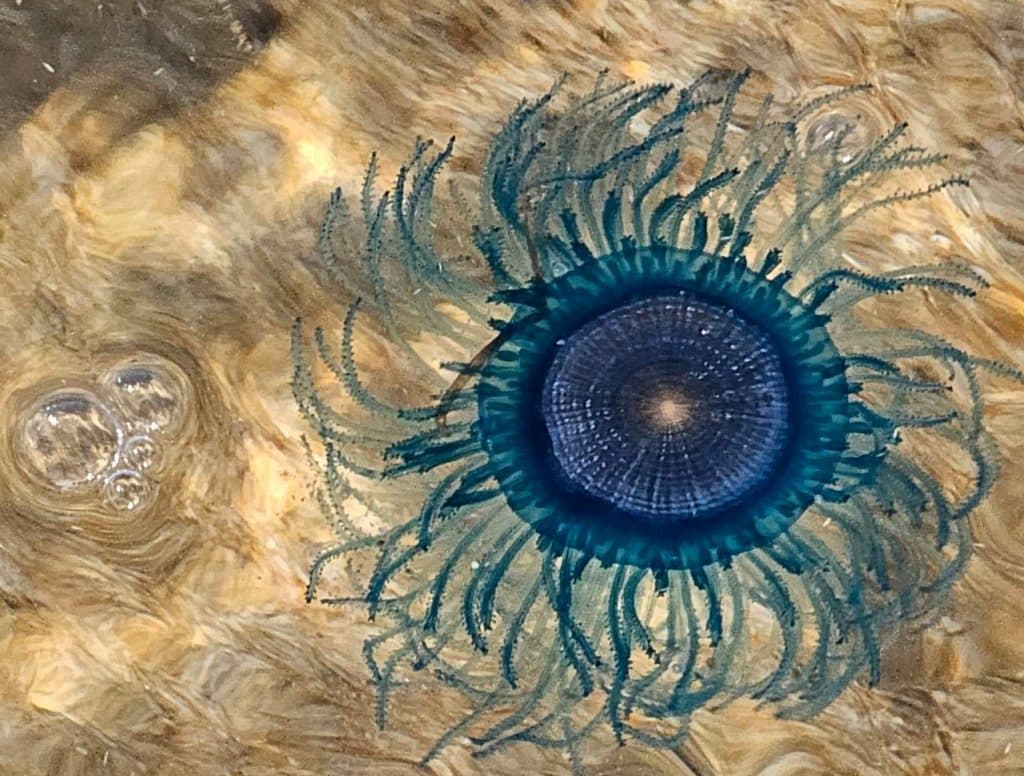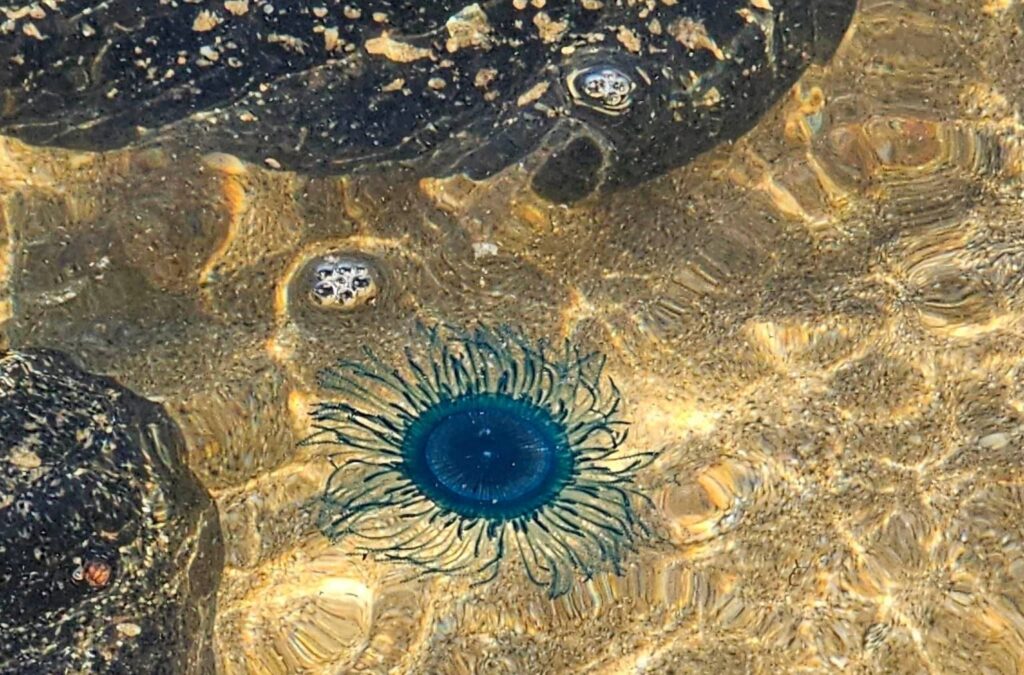
Described by one local as captivating and elegant, blue buttons (or porpita porpita) are being spotted in the shallow waters of Bundaberg beaches.
The blue button is a small marine organism made up of a blue disc and tentacles and is often mistaken for a type of jellyfish.
While beautiful in appearance, the tiny creatures can cause irritation if touched by humans and toxicity in animals if ingested.
Locals and veterinarians are warning community members to “look but not touch” blue buttons if spotted in local waters.
Resident Keri Lewinton said she was walking along Rifle Range beach with her children on Sunday when they glimpsed some of the unique specimens.
“The tide was slowly coming in and I saw this little blue thing floating in the water,” she said.
“I initially thought it was plastic, so bent down to pick it up, then saw it had tentacles and stepped back.”
It was then Keri began to notice more in the shallow waters.
“They were so beautiful and were floating elegantly, dancing with the waves,” Keri said.
“The children were fascinated by them, however, knowing very little about what they were, we kept them at a safe distance.
“I have never seen anything like this before.
“The circular body is around an inch and a half in diameter and the tentacles then branched out to a further two centimetres.
“When the stronger waves came, some turned the other way up; they are white underneath, which had a bobbled like texture.”
Keri said she decided to research the unique creatures and found out some interesting facts.
“In appearance, I was convinced they were a form of jellyfish but found that despite being called a blue button jellyfish, it is actually an organism closely related to other tropical water species,” she said.
“They have tiny barbs on their tentacles that can cause a sting to a human, but is more known to cause irritation.
“However to dogs they can be detrimental to their health, causing irritation to the throat and gut.”

Keep animals away from blue buttons
Dr Marianne Curran BVSc (hons), Veterinary Surgeon from Sugarland Animal Hospital, said blue buttons and other marine stingers could be detrimental to furry friends.
“The concern with your dog coming in contact with these little jellyfish arises from a reaction they can have if stung around the mouth region or if ingested,” she said.
“This can trigger a severe allergic reaction leading to swelling and possible anaphylaxis which could close or obstruct the airway, which can be fatal.
“Our recommendation is to ensure you are watching your dog closely at the beach for things they may ingest, including jellyfish.
“For some dogs that are very keen on licking or ingesting anything they may find, a basket muzzle is a great solution for beach visits as it still allows them to pant and drink water, but restricts them from ingesting anything foreign like a blue button.
“If your dog has ingested or had a blue button in their mouth, please call your local emergency veterinary clinic and bring your dog straight down for a triage assessment.”
Local resident Keri said her recent blue button find had been an educating experience.
“Despite these elegant ocean mini beasts not having such a great reputation, their beauty is phenomenal and otherworldly,” she said.
“It's captivating, seeing them float in and out of the waves, with their colours capturing the brightness of the sun.”




